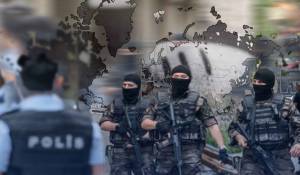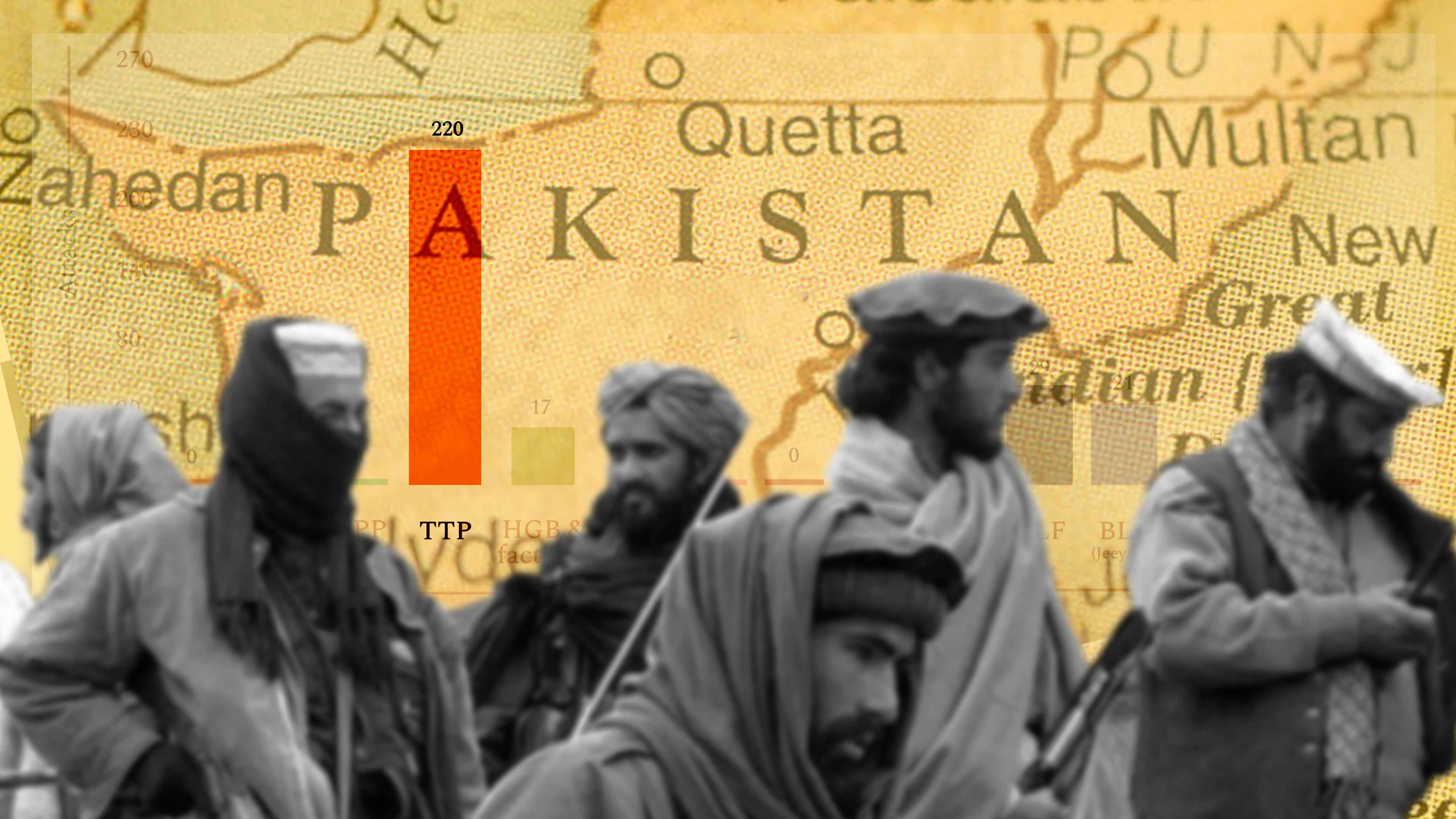
Ihsanullah Tipu Mehsud

March 05, 2026

The ongoing relentless wave of violence in Pakistan's Khyber Pakhtunkhwa and Balochistan provinces, perpetrated by the Pakistani Taliban and Baloch armed separatists, has resulted in numerous fatalities among Pakistani security forces and fueled social unrest to great extent in both regions, effectively advancing the key objectives of both the insurgencies.
Pakistani Taliban-led attacks, in particular, bear a resemblance to the weeks leading up to August 15, 2021, when the Afghan Taliban launched a widespread district-capture spree.
The frequency and surge in sophisticated attacks by the various factions of the Pakistani Taliban on security forces in Khyber Pakhtunkhwa indicates three key trends.
Firstly, the Pakistani Taliban have somehow successfully consolidated their presence in various parts of Khyber Pakhtunkhwa, reducing its reliance on Tashkeels (fighting units) coming from Afghanistan.
Secondly, the Pakistani Taliban's desperate attempts to secure sanctuaries within Pakistan may signal pressure from the Afghan Taliban, suggesting that their hospitality won't last long.
Thirdly, Taliban also appear to be attempting to demoralize both civilian and military law enforcement agencies in the province through extensive propaganda and operation campaigns, employing a strategy similar to the one used by the Afghan Taliban over the years in Afghanistan, which ultimately resulted in the fall of Kabul in August, 2021.
Pakistani Taliban's recent major influx into Pakistan, a shift from their previous strategy of avoiding keeping a sizable presence in the country, also presents an opportunity for the government to conduct targeted operations against them. Taliban past strategy of maintaining limited, makeshift sanctuaries to evade the government’s detection and consequent counter-operations had hindered security forces' effective operations.
Another key reason that impedes effective counter-terrorism operations - Pakistani officials often cite - is the Pakistani Taliban's tactic of blending in with civilians in certain areas.
“When we launch an operation in such areas and God forbid civilian losses occur, it immediately sparks local protests against security forces, further complicating the situation,” said an official familiar with the developments on condition of anonymity as he is not authorized to speak with media.
The Pakistani Taliban's constant evolution of tactics and innovative operational strategies have also significantly undermined the effectiveness of Pakistan's security forces operational strategy. A number of recent Intelligence-Based Operations (IBOs) led by Pakistani security forces have resulted in failure, reportedly, with the Taliban counter-attacks causing losses for the security forces.
Another key factor seems contributing to this failure is the Taliban's well-integrated networks on social media platforms. They share real-time updates on security forces' movements and potential raids, allowing them to evade getting targeted and stay ahead of the authorities. This extensive use of social media has greatly compromised the effectiveness of Pakistan's security forces operations.
Pakistani Taliban's strategic focus is on southern Khyber Pakhtunkhwa, particularly its two administrative divisions of Dera Ismail Khan and Bannu, aiming to establish territorial control. Their tactics, including raids on remote security forces posts and selective beheadings of soldiers, appear designed to demoralize security forces, compelling them to abandon their duties.
The Taliban's campaign of violence against police including targeted killings, IED attacks, and raids on compounds, had already caused a dire situation recently in three key districts of Khyber Pakhtunkhwa: Lakki Marwat, Bannu, and Bajaur. These districts are considered at the forefront in the fight against the Taliban. Local police forces there had not only abandoned their duties recently but also begun protesting, blaming the military and its intelligence for their losses.
This unprecedented development had escalated tensions between police and the military, marking a first in Pakistan's over two-decade fight against terrorism, where law enforcement publicly protested against the military.
Pakistani Taliban's strategy to drive a wedge between police and the military is evident in their consistent urgings to police, through statements, to restrain from joining the conflict.
The recent surge in large-scale attacks by the Pakistani Taliban and Baloch armed separatists in Pakistan may raise concerns in key global capitals as well.
In the past, international support, particularly from the United States, in terms of operational and financial assistance, has played a vital role in Pakistan's successful counterterrorism efforts.
Notably, US drone strikes have effectively eliminated the entire top Pakistani Taliban leadership, rather than being killed in a number of Pakistani large-scale military offensives.
Given Pakistan's vital geopolitical significance globally, the international community is unlikely to abandon it. Any Taliban gains would likely prompt widespread global concern and potentially mobilize renewed international assistance despite waning Western interest in Afghanistan and Pakistan.
The upcoming transition in the US administration, with the Biden administration yielding to the Trump administration in January, may bring new dynamics.
The US National Security Adviser and Secretary of Defense appointed by Trump are veterans of the Afghan war, possessing direct experience in engaging with the Taliban in Afghanistan. Although they are widely considered to be tough on Pakistan, the country's shifted strategic perspective – now viewing the Afghan Taliban as a strategic threat rather than a strategic ally – may align Pakistan’s interests with the new US administration.